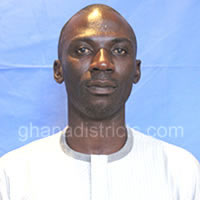The development process in the Techiman Municipality is impinged upon by various institutional structures that include state institutions, traditional governance structures, the private sector and non-governmental organisations including community based organisational. The Techiman Municipal Assembly is the over all governance authority and also responsible for development of the whole Municipality. Under local Government Act, 1993 (Act 462) the Assembly has deliberative, legislative and executive functions.
It is the highest political administrative and planning authority at the Municipal level. The current Techiman Municipality has been part of Wenchi and later Nkoranza and Kintampo districts before it’s establishment. Techiman Municipal Assembly was established under legislative Instrument (L.1.1472) of 1989 as a District Assembly and later upgraded into a Municipal Assembly under legislative instrument (L.I. 1799) of 2004. It is composed as follows:
The Municipal Chief Executive
45 Assembly Members elected by universal adult suffrage in the electoral areas into which the Assembly is divided of which are women 18 other members appointed by Government including women. Although the Local Government Act 462 requires that at least 30% of the appointed members must be women, Government appointees are made up of women i.e. only %. The two members of parliament in the Municipality.
The Municipal Chief Executive as the representative of the Central Government in the Municipality also chairs the Executive Committee of the Assembly, which is charged with the day-to-day running of the Assembly.
The Executive Committee has other sub-committees working up to it, namely:
- Finance and Administration
- Works
- Social Services
- Development
- Justice and Security
- Agriculture and Environment
- Disaster Prevention and Management
These sub-committees deliberate on issues in great detail and recommendations submitted to the executive committee, which in turn submits them to the General Assembly for ratification
Under Act 462, departments under the Techiman Municipal Assembly are expected to be integrated into eleven departments as provided under the law; however, this is yet to be fully operational.
Currently there are sixteen (16) departments operating namely:
- Education
- Health
- Agriculture
- Community Development
- Social welfare
- Controller and Accountant General
- Works
- Cooperatives
- Central Administration
- Town and Country Planning
- Parks and Garden
- Information Services
- National Youth Council
- Fire Services
- Disaster Management
- Forestry
The inputs of these departments into the running of the Assembly are visible at the sub- committee level where the various heads, as ex-officio members of the relevant sub-committees and Assembly, help fine tune decisions. The District Co-ordinating Director co-ordinates all activities of the departments to ensure harmony and avoid duplication of efforts. In the performance of its functions however; the Assembly is limited by the following problems;
- Inadequate office accommodation
- Inadequate logistics, especially for data management, monitoring and evaluation.
- Inadequate qualified personnel in some departments
The existing organisational structure of the Techiman Municipal Assembly is shown in figure 1.10
Substructures of the Assembly
The Assembly is sub-divided into six (6) Area Councils, three (3) Town Councils and one (1) Zonal Council (Techiman.) The effective operations of the Area Council have been hampered by lack of offices and other logistical support. The Tanoso and Nsuta Area Councils are the only Councils that have permanent offices.
There are 170 Unit Committees but not all of them have full complement of members nor are functional. These gaps in the democratic structures imply that the District Assembly Members becomes key in ensuring that there is effective information flow between the Assembly and the grassroots. The evidence on participation and consultation from the field indicate that there exist large information and communication gaps.
Participation and Consultation
Participation has been defined as the process through which the individual plays a role in the political, economic and social life of his or her community or country. Through it the individual contributes to the setting up of general goals for society and is aware of the available opportunities that enable him or her to suggest the best solutions for achieving the goals.
Participation in community level decision making
The incentives for citizens to participate in a given activity are deeply rooted in the peculiar physical, cultural, political and socio-economic circumstance in which they find themselves at a given time. Citizen’s participation in the Municipality depends among others on the incentives provided for them to participate as well as other factors like;
The outcome of previous experience with participation in government sponsored activities. The political, religious affiliation or in some communities chieftaincy inclination and Conformity of the institution for channelling participation through recognised existing community institutions. Communication channels are therefore vital for effective participation.
The use of resources requires that appropriate financial procedures and systems are put in place to ensure efficiency. Additionally, efficient use of resources requires that projects and programmes undertaken by the Municipal Assembly are beneficial and relevant to the people and consultation and participation of the intended beneficiaries can ensure efficiency and effectiveness in resource allocation. Participation also serves as an important monitoring and accountability mechanism.
Consultation may take place either through meetings or groups may be approached. However, the extent to which the population is covered in terms of consultation depends on individual and group interest in community matters, whether there is enough prior information about meeting times, whether the meeting times are convenient for a broad cross-section of the population and whether the meetings are called in the first place. For instance in Techiman, the Market days are from Wednesdays to Friday, as such meetings called on such days are not likely to be well attended depending on the target group.
Community Opinions indicate that there was not adequate information about decisions taken at the Municipal Assembly. Although, there is now some attempt by the Assembly to make public some revenues of the Assembly, the opinion of the community and private sector operators was that there is still not much knowledge about the expenditure of the Assembly. This situation needs to be improved.
Communities also complained that they were not consulted prior to the start of projects in their communities. This situation need to be improved since in can lead to completed projects being abandoned as is the case of an environ-loo public toilet at Akrofrom. Tuobodom however has a peculiar problem; the town has two chiefs and as such, it has become extremely difficult to organise the people because of the protracted chieftaincy dispute. These have resulted in serious negative effects on the development of the community. For instance a market complex built under the Towns III project is not being fully utilized due to dispute about its location on one side of the disputing parties.
The Municipality Assembly on the other hand indicated that before any project was undertaken, community sensitisations were carried out. The issue of such important development process may therefore depend on the timing of such meetings or durbars. If the timing coincides with the busy farming seasons most people in the rural areas will find it difficult to participate. Few women are also able to participate fully in such meetings and durbars if the timing coincides with the period that they are busy with domestic chores.
Consultation on the sitting and design of projects also need to be improved. The issue of unkept promises especially by politicians, District Assembly members and government officials has led to mistrust and apathy on the part of some community members towards participation. The issue of failure to give loans to individuals and failure to undertake “promised” projects were cited.
Inadequate feedback and follow up mechanism from the Municipal Assembly and the communities may account for this situation.
There also seem to be a serious communication gap between Assembly Members and the community. This was particularly true in situations where an Assembly member was responsible for more than one community. The complaint had been that the Assembly member in such circumstance was perceived to solve the problems and meet more often, with the communities in which he resides. This perception need to be corrected through appropriate measures like providing bicycles or other incentives to such Assembly Members to facilitate their mobility within their communities.
Lack of interest on the part of the beneficiaries does not contribute to attaining the desired levels of efficiency in the use of the Municipality’s resources. A challenge for the Municipal Assembly’s democratic process is to develop a system of consultation that will be able to involve a wider section of community and that is neither time consuming nor expensive. The Municipal Assembly could use the improved access to FM radio communication to communicate directly with the households before and after community fora/ durbars are held and also on other important issues and decisions of the Assembly. Information platforms such as social gatherings including festivals, funeral grounds, marriage ceremonies, community fora /meetings need to be fully exploited, for communication purposes.
Participation in elections
Participation in national and local elections is one means through which groups and individuals can influence decisions that impact on their lives. Involvement in the political at the local level can take various forms from voting in elections, to holding positions as Assembly Member or Unit committee Member. Participation in district elections is quite high. In 2000 the voter turn out was 62.53% (Techiman North: 62.3% and Techiman South (62.7%) as compared to a turn out of 85.26% (Techiman North: 87.02% and Techiman South (84.52%) in 2004. Men tend to be politically more active that women and the likelihood of voting between men and women is higher for men.
Private Sector Support Initiatives
In line with government policy of encouraging private Sector led growth, the Techiman Municipal Assembly is vigorously promoting a local economic development strategy. The public sector in the Municipality is therefore expected to create an enabling environment for the growth of the private sector.
Consequently, the Assembly has started embarking on some public private partnership initiatives by ceding some of it’s functions, which the private sector is better placed to deliver. For example, all the public toilets in Techiman Township as well as a restaurant and Bar have been put under private management. House to hou solid waste collection is also being undertaken on a limited scale. The Assembly is also undertaking the construction of public toilets with the private sector through the BOOT system. Shop/store complexes have been undertaken with private sector participation. Proposals are also underway to put the Assembly’s Guest House under private management.
Date Created : 11/21/2017 1:47:50 AM





 facebook
facebook twitter
twitter Youtube
Youtube TOLL FREE 0800 430 430
TOLL FREE 0800 430 430 +233 593 831 280
+233 593 831 280 GPS: GE-231-4383
GPS: GE-231-4383 info@ghanadistricts.com
info@ghanadistricts.com Box GP1044, Accra, Ghana
Box GP1044, Accra, Ghana